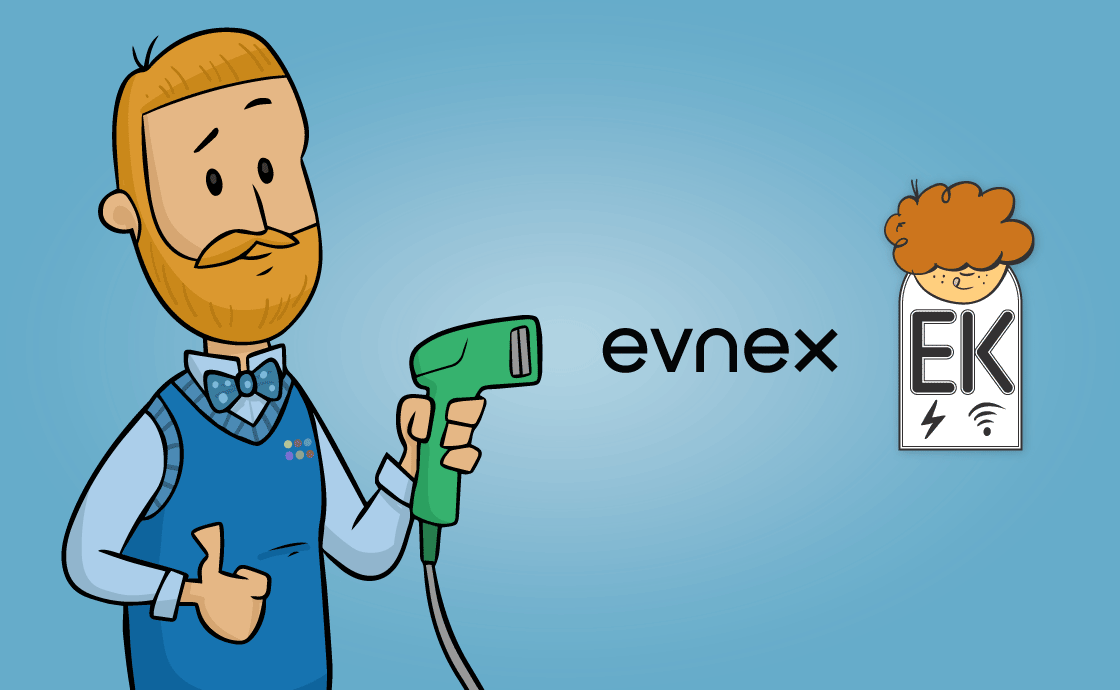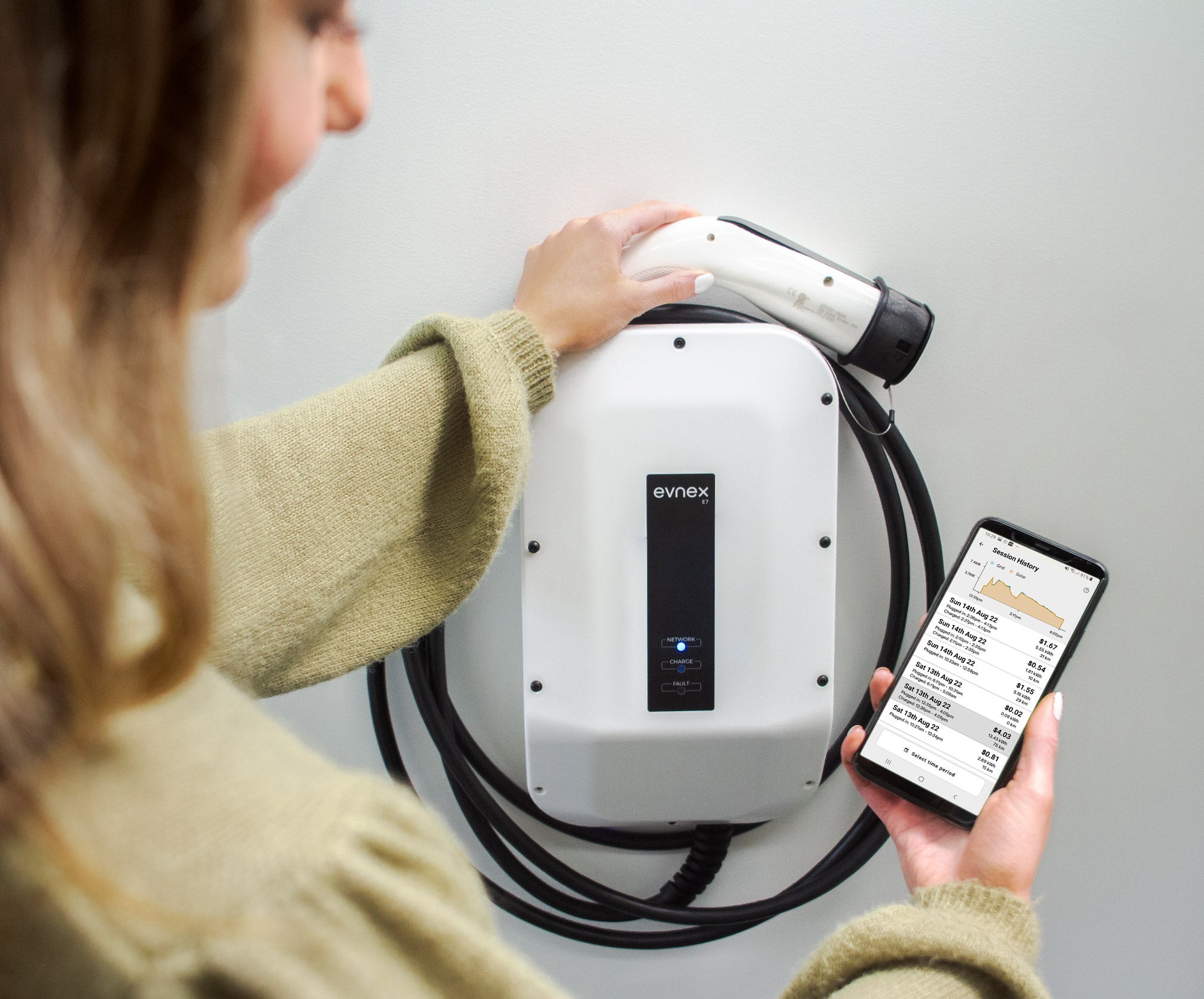If you’re considering buying an electric car (EV) or a plug-in hybrid electric vehicle (PHEV), there’s more to consider than just the car itself. You also have to take into consideration EV charging, and the method you’ll use.

Currently, if you want to charge an EV or a PHEV at home, you have two options:
Standard household power point
Electric vehicles typically come with a charging cable that can be plugged into a standard household three-pin power point. However, as it delivers a charge of around 10km per hour, it’s a slow option.
While this might be okay for topping up a PHEV that gets limited use, it’s not ideal if you require a fast-charging option, or you rack up a lot of kilometres on electric power alone.
Wall-mounted unit
A wall-mounted unit is a lot faster than relying on a standard power point. Many units offer speeds of around 30-40km per hour of charge. And for the time-sensitive, significantly faster models are also available. Smart-charges also feature options that allow you to schedule charging to make the most of cheaper power deals.
However, wall-mounted chargers are an additional cost on top of your PHEV. But that’s where Electric Kiwi can help!

Electric Kiwi + Evnex: Smart EV Charging
The new partnership between Electric Kiwi and Evnex, a local leader in EV charging, offers a discount on the installation of an Evnex charger, and helps spread the remaining cost over 12 months.
Electric Kiwi customers receive:
- $150 off the purchase price of their installed Evnex smart charger
- The option to pay off the remaining balance over 12 months via an interest-free plan, the payments added to their power bills
When paired with Electric Kiwi’s MoveMaster power plan – which offers cheap off-peak day and half-price overnight rates – an Evnex smart charger means that you can power up your EV at times when electricity is cheaper and more likely to be generated from cleaner energy sources.

Evnex: Smart EV Charging: the cost
If you sign up to Electric Kiwi’s deal, Evnex will manage the installation of your smart-charging device. The total price is determined by your property type and installation cost, but prices start from $2295 for a smart charger and standard installation.
EV charging power plans
As EVs and PHEVs have become common on our roads, more power companies have introduced plans that offer cheaper electricity during off-peak periods.
These types of plans typically employ a day/night tariff structure, allowing for EV charging at night (usually between 9pm and 7am) when electricity rates are cheaper.
This means you can simply plug in your EV at night and wake up to a full charge. Running your household appliances during the cheaper night tariff hours can also help cut costs. But keep in mind that higher rates may apply during the day.
→ Related article: EV Power Plans: The Best Power Plans for Electric Vehicles

Movemaster
One such plan is Electric Kiwi’s Movemaster. It offers discounted rates during off-peak shoulder times, and half-price rates during off-peak.
Notably, Electric Kiwi’s morning peak rates are just 7am-9am. Whereas all other providers charge peak rates until 11am. So if you’re around the house mid-late morning, you can get a great deal.
Throw in the fact that all Electric Kiwi plans come with an hour of free off-peak power, and there are plenty of opportunities to charge your EV or PHEV for little or no cost!
Movemaster hours:
Peak times: 7am-9am, 5pm-9pm
Off-peak shoulder times: 9am-5pm, 9pm-11pm
Half price night times: 11pm-7am
Compare electricity providers with Canstar Blue
If you have an EV, or are thinking about getting one, the right power plan is paramount. But finding the right provider can be a real challenge. Less than half of Kiwis believe they are getting a good deal on their power, yet only 12% of us have actually changed our electricity provider in the last 12-months.
If you are looking to change electricity providers, or are unsure if you are getting the best deal, Canstar Blue can help. We rate NZ power companies for customer satisfaction and value for money, see the table below for some of the results, or you can click on the button below for the full results of our survey.
Canstar Blue’s latest review of NZ power companies compares them on customer satisfaction. The table below is an abridged version of our full results, available here.
^ By clicking on a brand or 'details' button, you will leave Canstar Blue and be taken to either a product provider website or a Canstar Blue NZ brand page. You agree that Canstar Blue NZ’s terms and conditions apply (without limitation) to your use of this service,to any referral to a product provider from our website, and any transaction that follows. Canstar Blue may earn a fee for referrals from its website tables, and from sponsorship (advertising) of certain products. Payment of sponsorship fees does not influence the star rating that Canstar Blue awards to a sponsored product. Fees payable by product providers for referrals and sponsorship may vary between providers, website position, and revenue model. Sponsorship fees may be higher than referral fees. Sponsored products are clearly disclosed as such on website pages. They may appear in a number of areas of the website such as in comparison tables, on hub pages and in articles. Sponsored products may be displayed in a fixed position in a table, regardless of the product’s rating, price or other attributes. The table position of a sponsored product does not indicate any ranking, rating or endorsement by Canstar Blue. See How we are funded for further details.
Canstar Blue NZ Research finalised in April 2023, published in June 2023.
See Our Ratings Methodology
Compare electricity providers for free with Canstar Blue!
About the author of this page
 This report was written by Canstar’s Editor, Bruce Pitchers. Bruce began his career writing about pop culture, and spent a decade in sports journalism. More recently, he’s applied his editing and writing skills to the world of finance and property. Prior to Canstar, he worked as a freelancer, including for The Australian Financial Review, the NZ Financial Markets Authority, and for real estate companies on both sides of the Tasman.
This report was written by Canstar’s Editor, Bruce Pitchers. Bruce began his career writing about pop culture, and spent a decade in sports journalism. More recently, he’s applied his editing and writing skills to the world of finance and property. Prior to Canstar, he worked as a freelancer, including for The Australian Financial Review, the NZ Financial Markets Authority, and for real estate companies on both sides of the Tasman.
Enjoy reading this article?
You can like us on Facebook and get social, or sign up to receive more news like this straight to your inbox.
By subscribing you agree to the Canstar Privacy Policy


Share this article